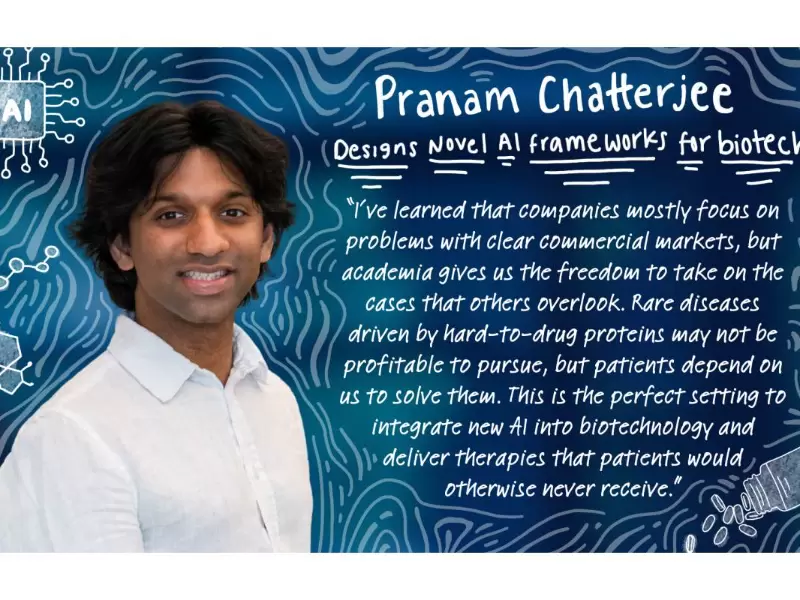Pranam Chatterjee develops AI tools to tackle rare and complex diseases
Indian-origin professor at University of Pennsylvania uses generative AI to design new molecular therapies.
 Pranam Chatterjee / University of Pennsylvania
Pranam Chatterjee / University of Pennsylvania
Pranam Chatterjee, an Indian-origin assistant professor at the University of Pennsylvania’s School of Engineering and Applied Science, is leading efforts to apply artificial intelligence to drug discovery for rare and hard-to-treat diseases.
Chatterjee, who holds appointments in Bioengineering and Computer and Information Science, grew up in a family of scientists in the American South. He originally studied religion at Dartmouth before transferring to MIT to pursue biology and computer science. His humanities background, he told Penn Engineering Today, continues to shape his work.
ALSO READ: Indian-origin scientist identifies immune cells linked to chronic inflammation and aging
“Studying religion taught me to be a people-first engineer,” he told Penn. “No matter how powerful your technology is, if it doesn’t fit into the way people see the world, it won’t have the impact you want.”
At Penn, Chatterjee directs a lab within the Center for Precision Engineering for Health. His team develops generative AI models that design therapeutic molecules aimed at so-called “undruggable” diseases, including pediatric cancers caused by unstable or fused proteins. Unlike traditional drug design approaches that rely on three-dimensional protein structures, his lab works with raw sequence data, generating new amino acid chains to target malfunctioning proteins.
“Biotechnology has the potential to solve so many of the world’s most pressing problems,” Chatterjee told Penn. “When designed well, AI can make sense of biological complexity and design solutions at scale.”
The group’s models not only create molecules but also optimize them for safety and usability. “Biology needs multi-objective optimization,” he explained. “For a therapeutic to work in the clinic, it has to meet many properties at once.”
Chatterjee’s academic base allows him to focus on rare diseases often ignored by industry, such as Alexander disease and pediatric sarcomas. His lab is also applying the models to Huntington’s disease, substance use disorder, and environmental toxins.
“I’ve learned that companies mostly focus on problems with clear commercial markets, but academia gives us the freedom to take on the cases that others overlook,” he told Penn.
Chatterjee emphasized Penn’s ability to support the full arc of discovery and testing. “Here, I can take technology all the way from the lab to patients without having to build a startup every time,” he said.
Alongside his research, he teaches undergraduate courses in cell engineering and discrete generative models. “We need talented and interdisciplinary minds to tackle the biggest issues we are facing today,” he told Penn.
ADVERTISEMENT
ADVERTISEMENT
E Paper
Video




 Pranavi Sharma
Pranavi Sharma

.jpg)











Comments
Start the conversation
Become a member of New India Abroad to start commenting.
Sign Up Now
Already have an account? Login